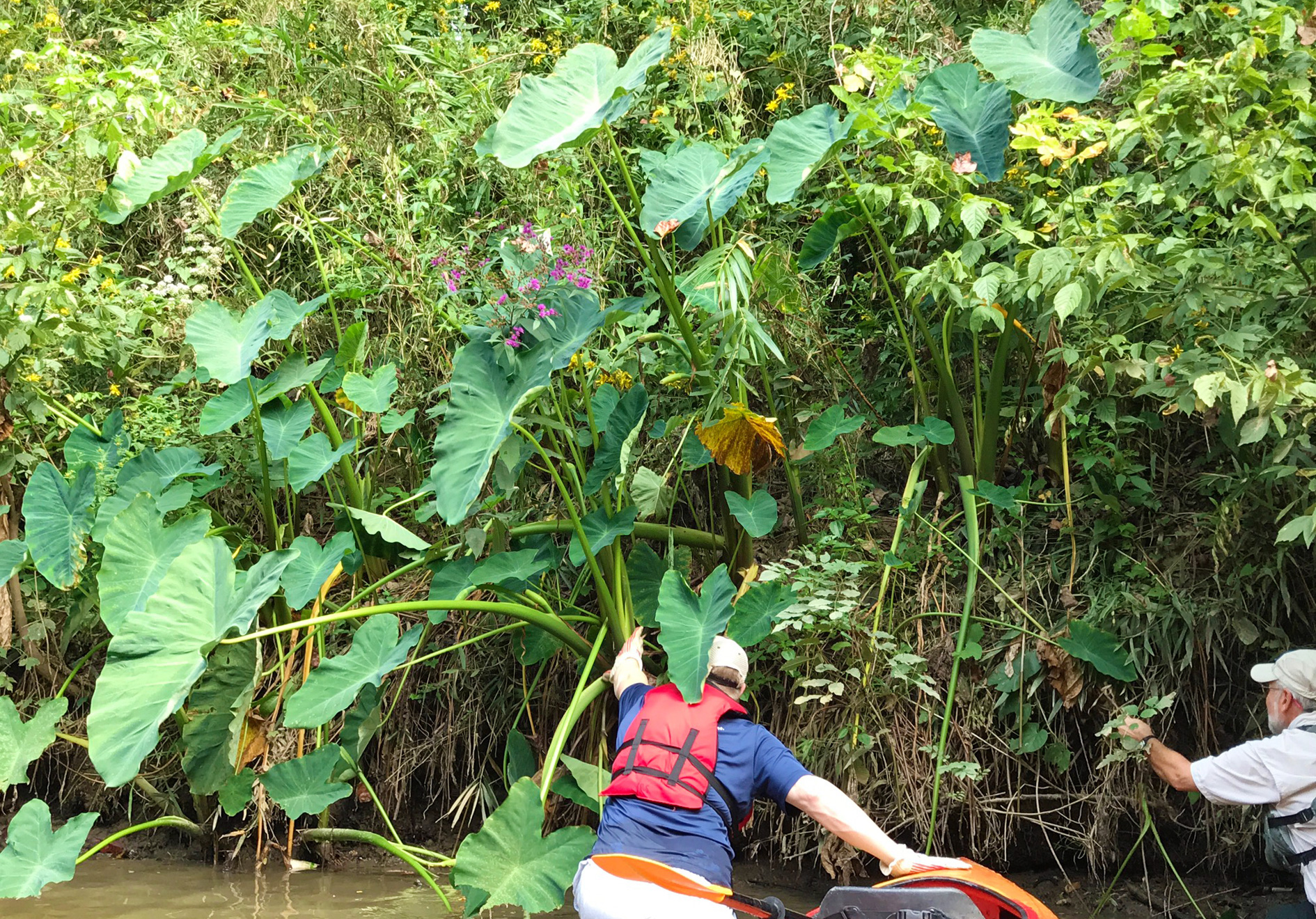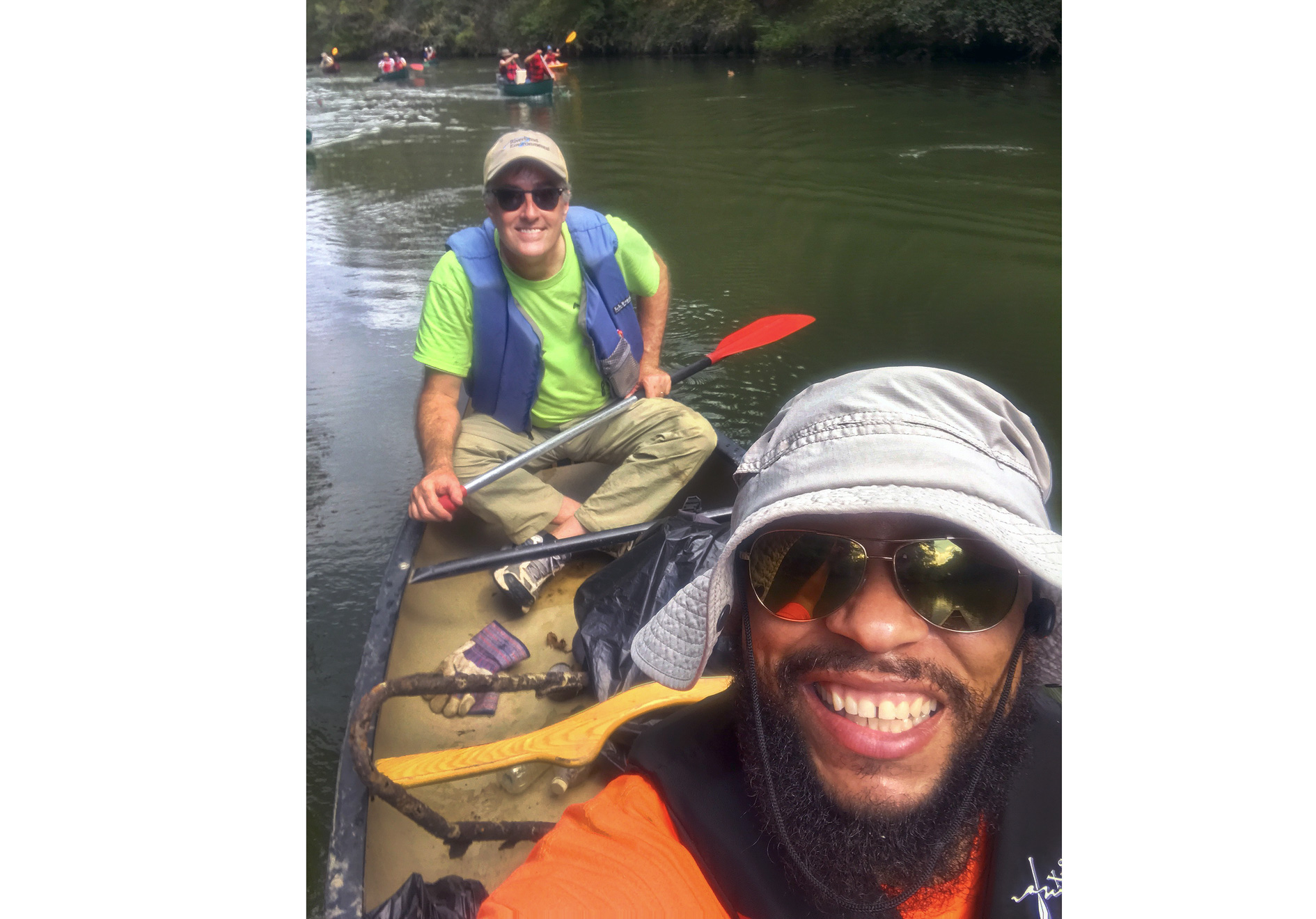On a postcard-perfect blue-sky day, tree branches weave verdant arches above a clear, slow-moving waterway. Skittish turtles slide from driftwood to disappear under the mirrored surface as people in canoes glide close. A heron, eyeing those floating visitors, flies gracefully to a limb a bit further away.
“This place is so beautiful and so quiet,” says a first-time paddler in a hushed voice that seems appropriate to the surroundings. “I can hardly believe we’re this near so much development and such busy highways.”
The 194-mile-long Cahaba River twists and turns through Alabama’s largest metro area. It’s a primary source of water for the Birmingham community and a globally recognized treasure of biological diversity. For those who discover the allure of this mostly hidden natural corridor, the river is a cherished source of outdoor recreation, especially canoeing and fishing.
Like other waterways, the Cahaba faces many threats. Abnormal amounts of sediment from construction, agriculture, and mining clog the riverbed and smother aquatic life. Storm runoff washes chemical pollutants and trash into the stream. Overflowing wastewater systems further stress the environment.
 The Taro plant threatens the rare Cahaba lilies, and must be pulled from the root by volunteers.
The Taro plant threatens the rare Cahaba lilies, and must be pulled from the root by volunteers.
The latest threat – says the nonprofit Cahaba River Society, which works to protect the river from these and other challenges and to educate residents about natural resources – is an invasive plant species called Taro that’s spreading like crazy.
“Taro is a fairly common ornamental landscaping plant with elephant-ear leaves,” said Dr. Randy Haddock, the Society’s field director. “Unfortunately, it escapes yards and goes wild, infesting riverbanks and overwhelming native species. It can overrun the rare Cahaba lilies that only exist in a few places, like the Cahaba National Wildlife Refuge downstream from Birmingham.”
To fight Taro, the Society recommends simply ripping it out by the roots. Key to the success of a Taro-removal campaign are concerned citizens willing to join the fight by paddling and wading to wherever patches thrive, digging them up, bagging the roots, and hauling them away.
That’s where volunteers such as those in the self-proclaimed Regions Navy come in. Comprised of employees at Regions Bank, one of many local companies supporting the Society’s mission, this canoe-paddling force has specifically targeted Taro.
 “I can hardly believe we’re on this river surrounded by nature and still right in the city,” says first-time Cahaba River paddler George Allen, foreground. Avid canoeist and story author Joe Rada is in the background.
“I can hardly believe we’re on this river surrounded by nature and still right in the city,” says first-time Cahaba River paddler George Allen, foreground. Avid canoeist and story author Joe Rada is in the background.
“In September, 20 Regions bankers spent a day in canoes and kayaks, locating and removing Taro plants,” said Ben Morgan, who organized the event. “We’re very fortunate that Regions allows associates to take one paid day off each year to do volunteer work through a program called ‘What a Difference a Day Makes.’ Being empowered to spend a workday to assist civic causes is very rewarding. I’m hopeful that we’ll pull together additional teams of volunteers to help the Cahaba River Society in this effort.”
The Society’s education director, Gordon Black, led this Regions crew into action, including some participants who had never been canoeing. They paddled 3.5 miles each direction on a narrow reservoir from which Birmingham draws much of its water supply and waded knee deep farther upstream through small rapids. Along the way, they used potato forks and shovels to uproot Taro until garbage bags bulging with them filled the vessels.
“Regions is one of the most effective volunteer forces we partner with,” Black says. “On one trip we filled 15 canoes – twice! – with trash from the reservoir. On another we pulled a mountain of trash from a free-flowing stretch of the river. Lately we’ve shifted to removing invasive plants.
“It’s enormously valuable to build relationships with corporations that provide volunteers,” Black added. “Getting more people on the Cahaba spreads the word about how great it is, what threatens it, and how they can become better stewards of the river.”
Of the hundreds of Taro plants removed by the Regions Navy, a select few lived to serve another purpose. Taken to the Cahaba River Fry-Down festival in downtown Birmingham’s Railroad Park, they were used for educational purposes.
“We showed hundreds of people what Taro looks like and explained the problem,” Black said. “Maybe now they’ll be more aware and not toss exotic plants where they might spread and harm the native species. Maybe now they’ll join us on the river and learn to appreciate the Cahaba.”